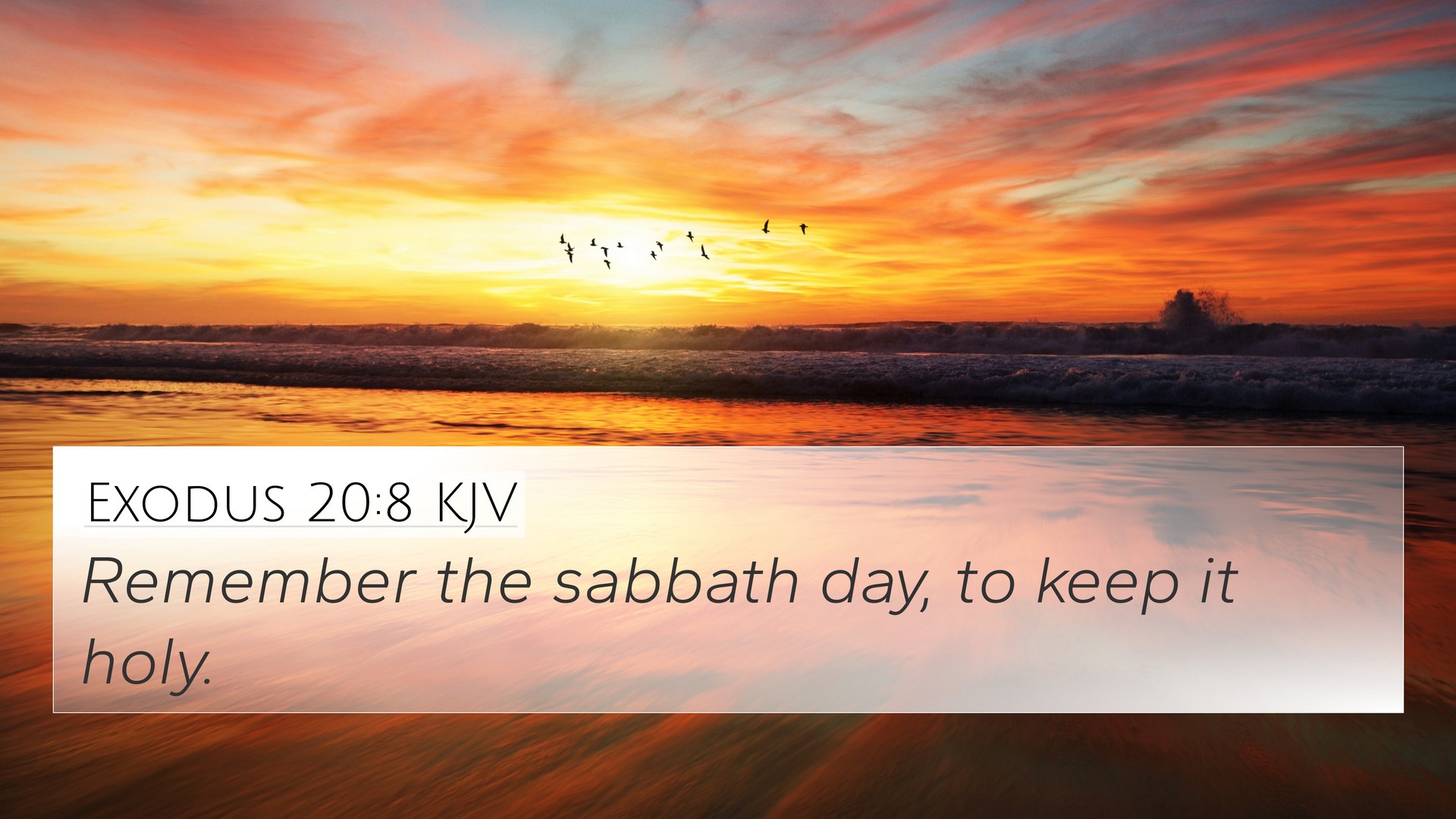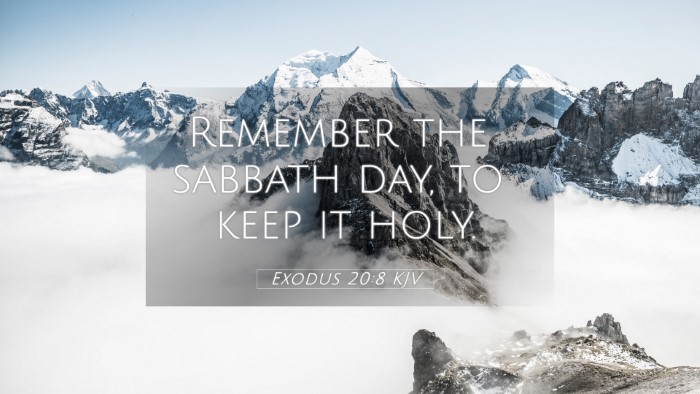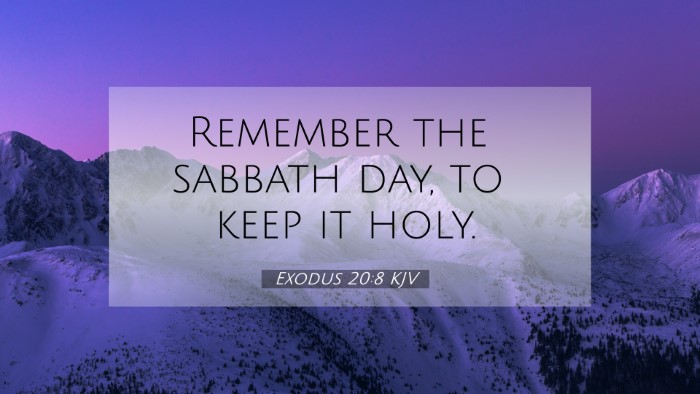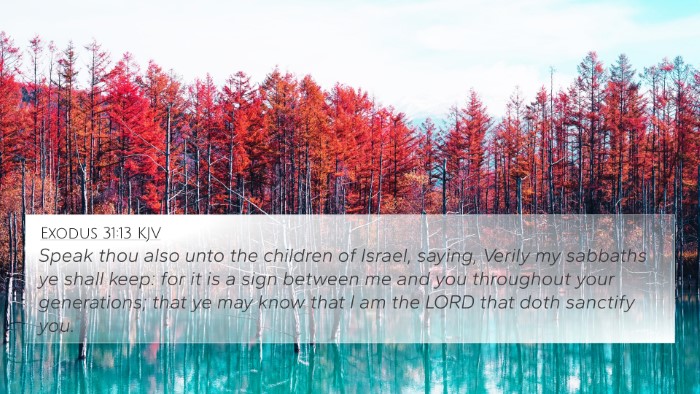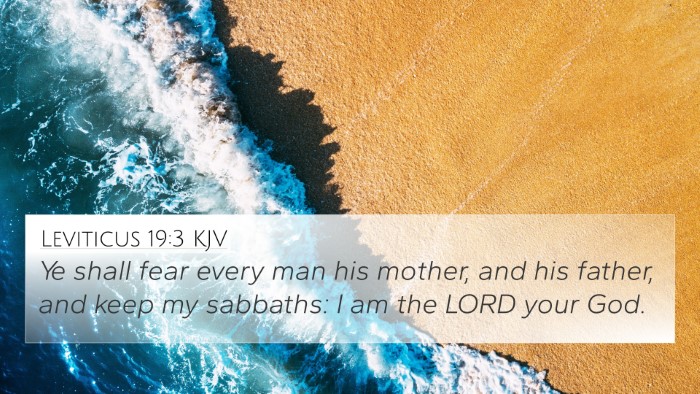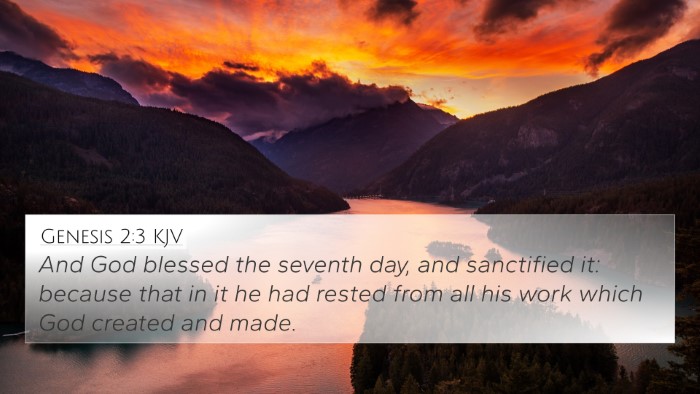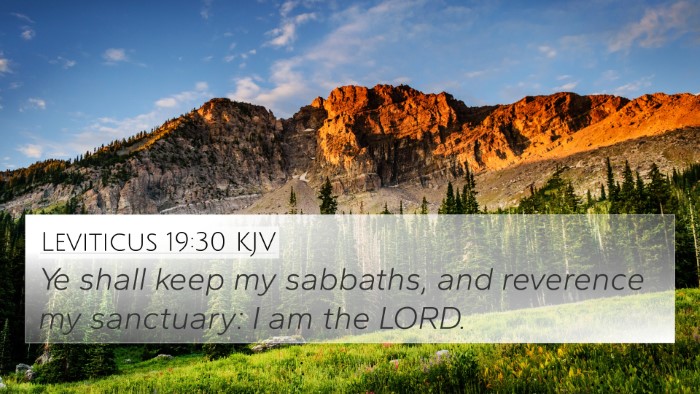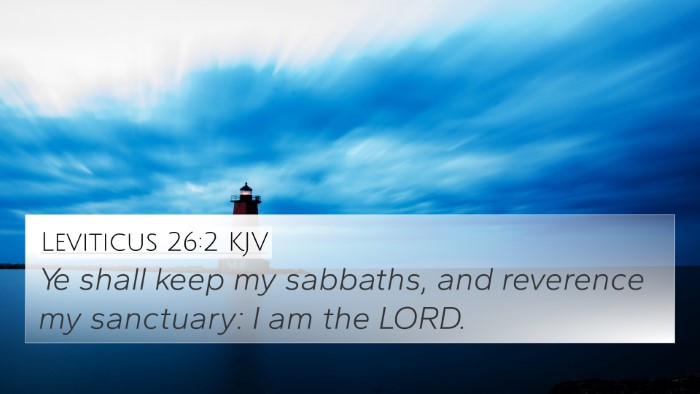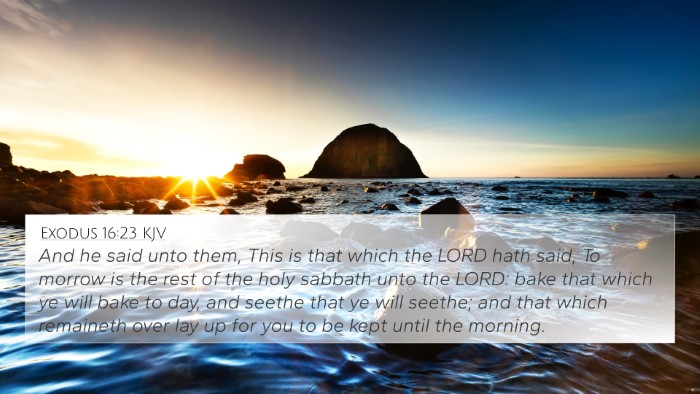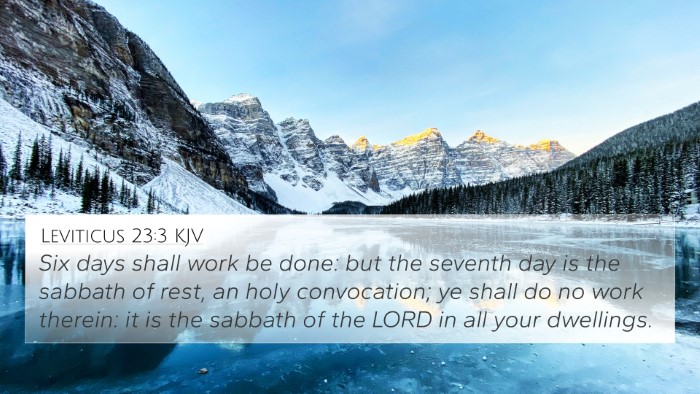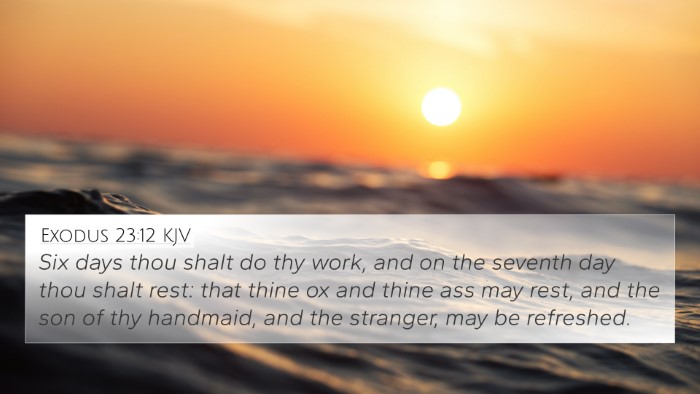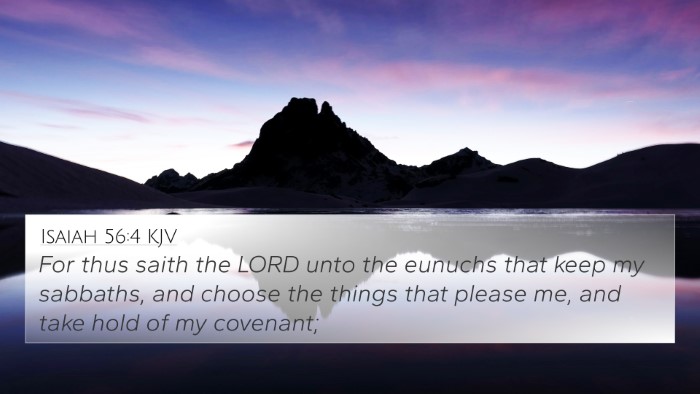Understanding Exodus 20:8
Verse: “Remember the sabbath day, to keep it holy.” (Exodus 20:8)
The commandment to remember the Sabbath day and keep it holy holds profound significance in the context of the biblical narrative. Throughout history, the Sabbath serves not only as a day of rest but as a celebration of God’s creation and a reflection of the covenant relationship between God and His people.
Insights from Commentators
-
Matthew Henry:
Henry emphasizes the importance of setting aside time for worship and rest. He notes that the Sabbath should remind believers of God’s rest after creation (Genesis 2:2-3) and underscores its function as a day dedicated to spiritual rejuvenation.
-
Albert Barnes:
Barnes highlights that the command to remember indicates an active and intentional choice to observe the Sabbath. He argues that this observance needs to stem from an understanding of God's creative work and His redemptive actions as seen in the broader narrative of the scriptures.
-
Adam Clarke:
Clarke notes that the Sabbath is a sign of God’s authority and serves as a reminder of the Israelites' deliverance from slavery in Egypt. He points out the necessity of holiness in this observance, reflecting on rest not just as physical cessation but as spiritual renewal.
Bible Cross-References
Exodus 20:8 connects to several other verses that illustrate the significance of the Sabbath throughout the scripture:
- Genesis 2:2-3: God rested on the seventh day, blessing and sanctifying it.
- Exodus 31:13: The Sabbath is a sign of the covenant between God and Israel.
- Leviticus 23:3: The Sabbath is designated as a holy convocation, emphasizing communal worship.
- Deuteronomy 5:12-15: A reminder of the Israelites' liberation from Egypt, reinforcing the socio-religious aspect of the Sabbath.
- Mark 2:27: Jesus affirms that the Sabbath was made for man, indicating its purpose in promoting human welfare.
- Hebrews 4:9-10: The Sabbath rest as a foreshadowing of the spiritual rest found in Christ.
- Matthew 12:8: Jesus proclaims that He is Lord of the Sabbath, underscoring His authority over religious practices.
Thematic Connections
In examining Exodus 20:8, we find thematic connections that align with various scriptural contexts:
- The connection between rest and holiness as modeled by God.
- The significance of communal observance in worship practices.
- The dual aspect of the Sabbath as rest for the body and the soul.
- Links between the legalistic observance of the Sabbath and the grace found in Christ.
Conclusion
Exodus 20:8 serves as a foundational verse that encapsulates the essence of the Sabbath. Through the insights provided by various commentators, we understand that this commandment extends beyond mere observance; it invites believers into a deeper relationship with God characterized by rest, reflection, and renewal. Cross-referencing this verse with others fosters a more profound understanding of God’s purpose behind the Sabbath, emphasizing its relevance across both the Old and New Testaments. As we engage in bible cross-reference study, we uncover the richness of scripture, highlighting the inter-Biblical dialogue that brings ancient truths into contemporary applications for faith and worship.
Exploring the connections between Bible verses not only enriches our understanding of specific verses like Exodus 20:8 but also enables us to recognize the overarching narrative of redemption that unfolds throughout the scriptures. Whether through thematic studies or comparative analysis, engaging with the Bible's interconnectedness offers invaluable insights into our spiritual journeys.
